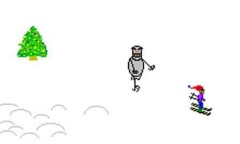By Steve Pak, | March 07, 2016

Google Logo
Google has received more than two times the number of requests from copyright holders to pull links with content that reportedly infringes on legal rights. Alphabet's subsidiary reported on March 7, Monday that it received over 76 million requests to pull such content from search results URLs that link to it.
Like Us on Facebook
The search giant's updated transparency report shows the number of requests is a year-over-year spike that is about 2.2 times higher from about 34 million requests last year, according to CNET.
Google has become the most popular search engine for finding information from different websites. It has even resulted in the popular phrase "Google it."
Several of the sites that pop up in search results are valid ones, but a big percentage is also pirate sites that include copied content from other Internet sites. It can result in lost revenue for the copyright holder and also infect desktops, laptops, and smartphones with malware.
Another way Google battles pirate sites is by "downranking" them, which causes the sites that have received many takedown requests to appear lower in Google's search results.
Companies like Google are protected by the Digital Millennium Copyright Act (DMCA) of 1998. They are shielded from lawsuits due to financial loss based on claims of copyright breaking.
There is one key rule. The pirate company must remove access to content that supposedly violates a copyright after it gets a request to take that action.
When online sites believe their copyrights have been broken they can fill out a form at Google's Content Removal site, and request that certain links to the tech giant's search results be pulled. The processing time is about six hours.
In related news Google Play, Microsoft's Xbox Music, and other music-streaming services are facing a class-action lawsuit, according to Digital Music News. It started with a $200+ million lawsuit against Spotify.
The legal actions will reportedly be officially announced within 10 days. Artist activist David Lowery has already settled with Microsoft. It could result in several class-action suits and hundreds of millions in loyalty damages.
At the center of the debate are "mechanical" copies of songs. Music streaming services are being accused of copyright "trolling" by copying temporary files.
Here's how to file a copyright takedown request with Google:
-
Use of Coronavirus Pandemic Drones Raises Privacy Concerns: Drones Spread Fear, Local Officials Say

-
Coronavirus Hampers The Delivery Of Lockheed Martin F-35 Stealth Fighters For 2020

-
Instagram Speeds Up Plans to Add Account Memorialization Feature Due to COVID-19 Deaths

-
NASA: Perseverance Plans to Bring 'Mars Rock' to Earth in 2031

-
600 Dead And 3,000 In The Hospital as Iranians Believed Drinking High-Concentrations of Alcohol Can Cure The Coronavirus

-
600 Dead And 3,000 In The Hospital as Iranians Believed Drinking High-Concentrations of Alcohol Can Cure The Coronavirus

-
COVID-19: Doctors, Nurses Use Virtual Reality to Learn New Skills in Treating Coronavirus Patients









